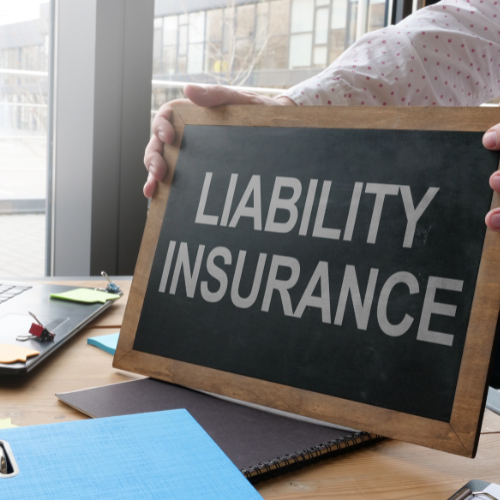Liability insurance planning is a crucial component of financial security. It safeguards individuals and businesses from financial losses resulting from legal claims, accidents, or negligence. Whether you’re protecting personal assets or business interests, a well-thought-out liability insurance plan ensures you are covered in the face of unforeseen liabilities.

What is Liability Insurance?
Liability insurance provides coverage for legal claims or damages caused to others due to your actions or negligence. It includes compensation for medical expenses, legal fees, and other costs associated with the claim.
Types of Liability Insurance
1. Personal Liability Insurance
- Purpose: Protects individuals against claims for property damage or bodily injury they may cause to others.
- Coverage Examples:
- Accidental injury to a guest in your home.
- Damage caused by your pet to a neighbor’s property.
2. Business Liability Insurance
- Purpose: Shields businesses from financial losses due to lawsuits or claims related to operations.
- Common Policies:
- General Liability Insurance: Covers bodily injury, property damage, and advertising injuries.
- Professional Liability Insurance: Protects professionals from claims of negligence or malpractice.
- Product Liability Insurance: Covers claims related to defective products.
3. Employer Liability Insurance
- Purpose: Protects employers against claims made by employees for work-related injuries or illnesses.
- Examples: Wrongful termination claims or workplace accidents.
4. Umbrella Insurance
- Purpose: Provides additional coverage beyond standard liability policies.
- Best For: High-net-worth individuals or businesses with significant assets at risk.
5. Auto Liability Insurance
- Purpose: Covers damages and injuries caused by vehicle accidents.
- Required Coverage: Most states mandate a minimum level of auto liability insurance.
Why Liability Insurance is Essential
-
Financial Protection
- Shields personal and business assets from costly lawsuits.
-
Legal Compliance
- Many jurisdictions and industries require liability coverage to operate legally.
-
Peace of Mind
- Provides reassurance that you’re protected against potential claims.
-
Reputation Management
- Helps manage claims professionally, preserving personal or business reputation.
Steps
-
Assess Your Risk Exposure
- Identify areas of vulnerability in your personal life or business operations.
- Consider factors like property ownership, professional services, and high-risk activities.
-
Determine Coverage Needs
- Evaluate the value of your assets and potential liabilities.
- Ensure coverage limits align with potential risks.
-
Select Appropriate Policies
- Choose liability insurance tailored to your specific needs.
- Include umbrella insurance for additional coverage if necessary.
-
Review and Update Regularly
- Life changes, business growth, or legal updates may require policy adjustments.
- Conduct annual reviews with an insurance professional.
Common Mistakes in Liability Insurance Planning
-
Underestimating Risks
- Failing to consider the full scope of potential liabilities can leave gaps in coverage.
-
Relying Solely on Employer-Provided Coverage
- Supplemental personal policies may be needed for comprehensive protection.
-
Overlooking Umbrella Insurance
- Neglecting umbrella insurance can expose high-net-worth individuals to significant losses.
-
Neglecting Policy Reviews
- Outdated coverage may not reflect current risks or asset values.
Benefits
- Customized Solutions: Tailored policies to address specific risks and needs.
- Expert Advice: Guidance on legal requirements and coverage options.
- Cost Efficiency: Avoid over-insuring or under-insuring by finding the right balance.
Conclusion
Liability insurance planning is a proactive measure to protect yourself, your family, or your business from financial setbacks due to unforeseen claims. By understanding your risks, choosing the right policies, and regularly updating your coverage, you can ensure long-term financial stability and peace of mind with DCFINSRV.
